| Srl | Item |
| 1 |
ID:
124847
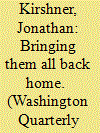

|
|
|
|
|
| Publication |
2013.
|
| Summary/Abstract |
A generally underappreciated shift in U.S. engagement with the global macroeconomic order, accelerated by the global financial crisis, has complicated managing the dollar as a global currency and placed new, politically unfamiliar constraints on U.S. power.
|
|
|
|
|
|
|
|
|
|
|
|
|
|
|
|
| 2 |
ID:
127354
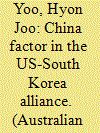

|
|
|
|
|
| Publication |
2014.
|
| Summary/Abstract |
Over the past 10 years, South Korea has chosen inconsistent strategies with respect to the US-South Korea alliance. On the one hand, Seoul disagreed with Washington about the extended role of United States Forces Korea and the deployment of US missile defence systems in East Asia. On the other hand, these problems ironically coincided with South Korea's strong support for the USA in operations in Afghanistan and Iraq. What explains the inconsistency of South Korea's alliance policies? Major schools of thought in international relations have offered explanations, but their analyses are deficient and indeterminate. This article looks at the South Korea-China-North Korea triangle as a new approach to explaining the puzzling behaviour of South Korea. The model shows that South Korea's alliance policies are driven by two causal variables. First, North Korea is an impelling force for South Korea to remain as a strong US alliance partner. This encourages Seoul to maintain cooperation with Washington in wide-ranging alliance tasks. Second, South Korea's policies are likely to reflect the way the nation perceives how useful China is in taming North Korea. The perceived usefulness of China causes Seoul to accommodate China and decrease cooperation with the USA. This might strain the relationship with the USA should South Korea evade alliance missions that might run contrary to China's security interests.
|
|
|
|
|
|
|
|
|
|
|
|
|
|
|
|
| 3 |
ID:
124175
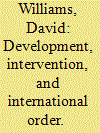

|
|
|
|
|
| Publication |
2013.
|
| Summary/Abstract |
The project of international development involves the reordering of states (or at least attempts to do so), it sits at the intersection between transnational forces and bounded political entities and it is a manifestation of the will to order of powerful states. It would seem then to be closely connected to practices of intervention. At times, the practices of development agencies have taken on a more interventionist character, but in recent years their relationship to many developing countries has taken on a more intricate, subtle, and everyday form. It has in important respects moved 'beyond' intervention. This has significance beyond international development. Development agencies have been recruited to wider projects of international ordering, especially the construction of regimes of global governance and the 'development' of post-intervention states.
|
|
|
|
|
|
|
|
|
|
|
|
|
|
|
|
| 4 |
ID:
104182
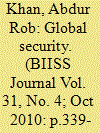

|
|
|
| 5 |
ID:
124129
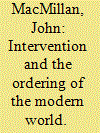

|
|
|
|
|
| Publication |
2013.
|
| Summary/Abstract |
This introductory discussion establishes the notion of intervention as a 'social practice' and carves out the contextual and conceptual space for the Special Issue as a whole. The first move is to recontextualise intervention in terms of 'modernity' as distinct from the sovereign states system. This shift enables a better appreciation of the dynamic and evolutionary context that generates variation in the practice of intervention over time and space and which is analytically sensitive to the economic and cultural (as well as Great Power) hierarchies that generate rationales for intervention. The second move is to reconceptualise intervention as a specific modality of coercion relatively well-suited to the regulation or mediation of conflict between territorially bounded political communities and transnational social forces. Third is to 'historicise' the practice of intervention through showing how it has changed in relation to a range of international orders that have defined the modern world and which are each characterised by a different notion of the relationship between social and territorial space. Fourth and finally is a brief consideration of the possibility of intervention's demise as a social practice.
|
|
|
|
|
|
|
|
|
|
|
|
|
|
|
|
| 6 |
ID:
127396
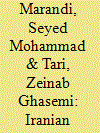

|
|
|
| 7 |
ID:
128913
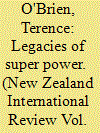

|
|
|
| 8 |
ID:
125382
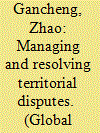

|
|
|
|
|
| Publication |
2013.
|
| Summary/Abstract |
Territorial disputes between China and some of its neighbors are of the most spectacular issues in the region. there are deep concerns about what is going on between China, the rising power of the world arena, and the Asia-Pacific neighbors over territorial disputes and differences in maritime rights. From these ongoing disputes, these are also speculations on the real motives of relevant parties, and naturally, lot of suspicions have come up constantly, destructing the regional environment for common development.
|
|
|
|
|
|
|
|
|
|
|
|
|
|
|
|
| 9 |
ID:
125191
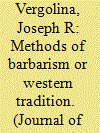

|
|
|
|
|
| Publication |
2013.
|
| Summary/Abstract |
The historical significance of the Second Anglo-Boer War (1899-1902) has traditionally suffered from the conflict's chronological proximity to the Great War. Compared to the industrial slaughter of 1914-1918, the military extremism employed in the South African conflict has gone largely unanalyzed. A close examination of British military policies during the Second Boer War shows that the resort to escalatory violence sprang from frustration at the elusiveness of decisive battle, deemed vital to shore up Britain's position as the world's sole superpower, and was sanctioned by a Western tradition of unrestricted violence towards peoples like the Boers who pursued unconventional battlefield strategies.
|
|
|
|
|
|
|
|
|
|
|
|
|
|
|
|
| 10 |
ID:
130471
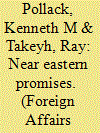

|
|
|
|
|
| Publication |
2014.
|
| Summary/Abstract |
Contrary to popular myths and conspiracy theories about Washington's desire to control the Middle East, for the past six decades, U.S. policymakers have usually sought to minimize the United States' involvement there. But the high-stakes nature of American interests in the region -- particularly oil -- and the complexity of the Middle East's problems always seem to draw the United States back in. In spite of himself, U.S. President Dwight Eisenhower was sucked into the Suez crisis in 1956 and the pan-Arabist revolts of the late 1950s. Lyndon Johnson barely lifted a finger to prevent the Six-Day War in 1967. Richard Nixon found himself grudgingly drawn into the region by the 1973 Arab-Israeli war and the superpower nuclear crisis it caused. Despite his aggressive image, Ronald Reagan did little in response to repeated attacks in Lebanon and the Persian Gulf by Iran and its proxies. George H. W. Bush came to office hoping to ignore Saddam Hussein, not to go to war with him. And although it is rarely remembered today, George W. Bush was not particularly interested in the Middle East and paid little attention to the region prior to the 9/11 attacks.
|
|
|
|
|
|
|
|
|
|
|
|
|
|
|
|
| 11 |
ID:
127928
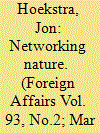

|
|
|
|
|
| Publication |
2014.
|
| Summary/Abstract |
Conservation is for the first time beginning to operate at the pace and on the scale necessary to keep up with, and even get ahead of, the planet's most intractable environmental challenges. New technologies have given conservationists abilities that would have seemed like super powers just a few years ago. We can now monitor entire ecosystems -- think of the Amazon rainforest -- in nearly real time, using remote sensors to map their three-dimensional structures; satellite communications to follow elusive creatures, such as the jaguar and the puma; and smartphones to report illegal logging.
|
|
|
|
|
|
|
|
|
|
|
|
|
|
|
|
| 12 |
ID:
125369
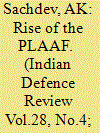

|
|
|
|
|
| Publication |
2013.
|
| Summary/Abstract |
The 'inscrutable' sobriquet for the Chinese is not so much because of their unsmiling faces but on account of their unpredictable actions. Military action against India may not come in the form of a full-fledged war. Small pin pricks in 'disputed territories' may keep increasing in magnitude and frequency until even the submissive and cautious Indian government is constrained to react. Should that happen and a larger military confrontation become inevitable, the PLAAF would be a major instrument of damage to our forces, assets and national pride. Some writings on the 1962 conflict include views that the IAF could have done considerable damage to the Chinese as the PLAAF had outdated aircraft and equipment then. The same is not true about the PLAAF today. The continuing delays in updating capabilities of the IAF relentlessly bring us closer to the possibility of a humiliating experience at the hands of the PLAAF.
|
|
|
|
|
|
|
|
|
|
|
|
|
|
|
|
| 13 |
ID:
061043
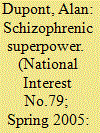

|
|
|
| 14 |
ID:
101262
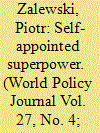

|
|
|
| 15 |
ID:
102312
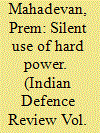

|
|
|
| 16 |
ID:
027324
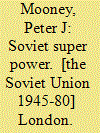

|
|
|
|
|
| Publication |
London, Heinemann Educational Books., 1982.
|
| Description |
vii, 210p.hbk
|
| Standard Number |
043531601X
|
|
|
|
|
|
|
|
|
|
|
|
Copies: C:1/I:0,R:0,Q:0
Circulation
| Accession# | Call# | Current Location | Status | Policy | Location |
| 020167 | 947.085/MOO 020167 | Main | On Shelf | General | |
|
|
|
|
| 17 |
ID:
114244
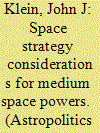

|
|
|
|
|
| Publication |
2012.
|
| Summary/Abstract |
When compared to the strategies of superpowers, the strategies of medium powers are often different due to a medium power's frequent desire to act independently while being comparatively more constrained by available material and fiscal resources. For this reason, the space strategy of medium space powers is different from either emerging or super space powers. The fundamental purpose of any medium space power's space strategy should be to ensure access to and use of celestial lines of communication to support national objectives, whether during peace or conflict. When deciding how best to protect its interests in space, a medium space power will have a variety of non-military and military options. These options may include diplomacy, economic measures, benign defensive technologies, or the employment of offensive actions in space. Though the debate surrounding the weaponization of space continues, it is worth noting that the application of the inherent right of self-defense provides the authority for states to protect their assets or interests when attacked, and this protection may include the use of force in space, if needed.
|
|
|
|
|
|
|
|
|
|
|
|
|
|
|
|
| 18 |
ID:
184901
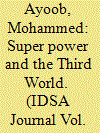

|
|
|
| 19 |
ID:
184716
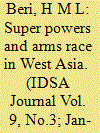

|
|
|
| 20 |
ID:
125364
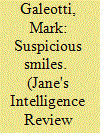

|
|
|
|
|
| Publication |
2013.
|
| Summary/Abstract |
Russian prime minister Dmitry Medvedev visited China in late October to hold high level talks and oversee a major new energy deal. Mark Galeotti reports on the countries' economic, political and security relations, which appear to be blooming.
|
|
|
|
|
|
|
|
|
|
|
|
|
|
|
|